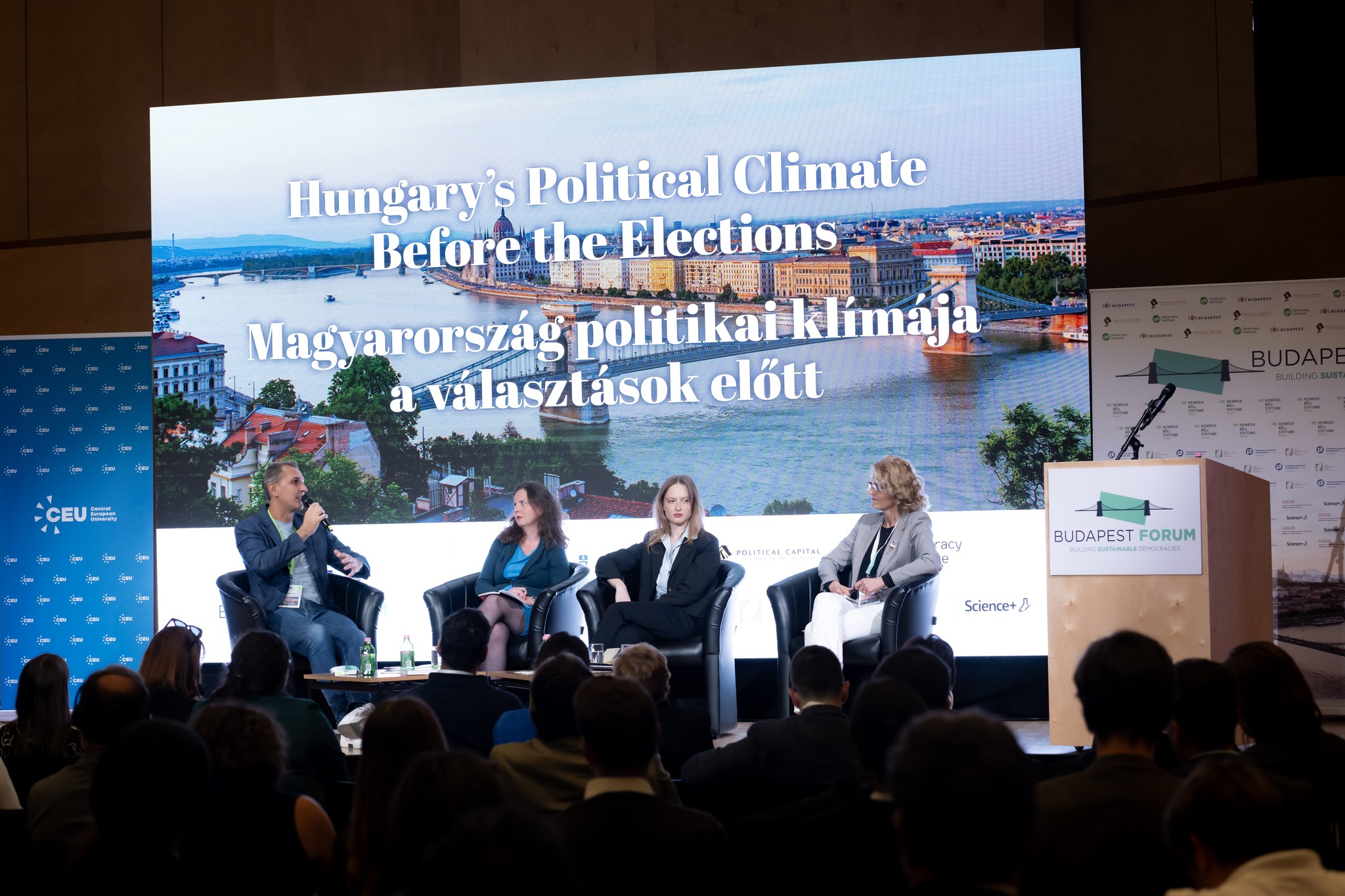Hungary’s political climate before the elections (in Hungarian)
2025-09-24
Panel summary: ‘Hungary’s political climate before the elections’ at Budapest Forum 2025.
Participants
Eszter Kováts – Researcher, University of Vienna
Nóra Schultz – Political Consultant, Podcast Host, Partizán
Andrea Szabó – Director, Institute for Political Science, HUN-REN Centre for Social Sciences
Moderator: Szabolcs Dull – Political Analyst, Journalist

Main takeaways
- Seven months before Election Day, it remains difficult to identify the main question of the election, as the two leading forces frame the stakes in very different terms. Péter Magyar seeks to cast the vote as a referendum on whether Viktor Orbán should stay or go. Fidesz, by contrast, presents the choice as one between “chaos or Orbán.”
- When assessing the chances of the 2026 elections, it is not enough to look only at party preference polls. The broader mood of the electorate also matters: voters’ satisfaction with their current economic and social conditions, and their appetite for political change.
- Hungary has an estimated 700–800,000 undecided voters who are likely to make up their minds only in the final months, or even days, before the election. Their decisions will be driven mostly by tangible, everyday concerns – an area where the ruling party has more tools at its disposal to shape perceptions. Still, the 2010 election demonstrated that an opposition party can succeed in convincing voters that, no matter what the government promises, life can only improve after a change of regime.
- In Budapest, we like to think that the world is preoccupied with us. In reality, Hungary does not even rank among the top 100 problems in the West – even if Orbán is undoubtedly seen as a role model on the populist right.
- For TISZA, one of the greatest risks is its one-man-show character. Soon we will learn the names of its individual constituency candidates, most of whom will be politically inexperienced and therefore vulnerable targets for government smear campaigns.
- If TISZA wins, two scenarios are possible. In one, Orbán-loyal institutions – from the Constitutional Court to the Fiscal Council – paralyze the government, leading to snap elections. In the other, a TISZA-led government manages to assert itself, and all political actors begin seeking favor with the new prime minister. Which scenario unfolds will depend largely on the size of TISZA’s victory margin.
- As Ivan Krastev pointed out in his keynote, post-populist governments face a peculiar trilemma: they must govern quickly, effectively, and lawfully – but at most, only two of these are achievable at the same time. A future TISZA government will not escape this challenge either.
Explore all the panel discussions from Budapest Forum 2025 here.
Copyright 2026. Political Capital Policy Research and Consulting Institute, all rights reserved.

